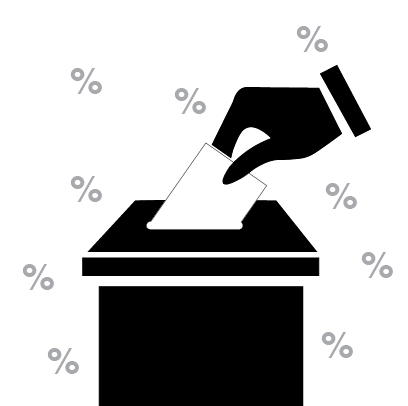It may not be your profanity-riddled Facebook status or incriminating Instagram picture that’s keeping you from your dream job. It can be something as simple as your name.
There is such thing as name discrimination. Depending on the job, certain ethic forenames and surnames can be considered advantageous or disadvantageous.
There is such thing as name discrimination. Depending on the job, certain ethic forenames and surnames can be considered advantageous or disadvantageous.
According to a study conducted by the National Bureau of Economic Research, resumes with white names received one callback per 10 resumes, while traditionally African Americans names received one callback per 15 resumes.
Although racism may not be as prevalent as it was in the past, it still exists in all aspects of life. Subconsciously, employers use names as a deciding factor even when different levels of qualifications are involved.
The Joneses, Millers, Trans and Nguyens will have a significant advantage over the Sanchezes or the Williams. In this case, having a white or Asian name is considered a privilege, while other ethnic names don’t fare as well.
On the other hand, ethnic names may help in the hiring process of jobs dealing with communications, customer relations, services and language translation in which multi-linguistics are desired and having people of different cultures is a positive attribute.
In both situations, names are still used to define someone’s ability. Whether it’s intelligence, drive, or image — ethnic names do make a difference.
Companies do have a right to uphold the image or brand they want, but it should not be fixed on something prejudiced. A “Jamal” could be as — if not more — qualified as a “Greg,” in reference to the NBER research.
Unfortunately, more than 50 years after the civil rights movement, ethnic minorities are still being decremented for who they are and being forced to assimilated and whitewash their resumes.
Is already having a name that is considered white a privilege?
A New York Times article, “‘Whitening’ the Resume,” reported some applicants changing their names or choosing to not list certain colleges or organizations associated with the African American community in order heighten their chances of employment.
A Collegeportait 2013 snapshot presents the ethnic diversity of 27,823 undergraduate students at San Diego State. The racial and ethnic breakdown concludes that 36 percent of our school is white, while the other 64 percent constitutes an ethnically diverse student population.
Personally, as an Asian American, gaining employment in many job markets would be fairly easy. The racial stereotype of Asians is one that exudes a caricature of a hardworking, intelligent, versatile expert in all things math, science and technology. While that may not all be true, many Asian Americans, such as myself, are perfectly fine with this stereotype.
Reaping the benefits of those positive stereotypes is easy. Proving the negative stereotypes wrong is the hard part. Many people are aware of this injustice, including both employers and job seekers, but knowing about it is not enough.
For those who have the privilege of a preferred name or race, it may be hard to want to rock the boat, but wouldn’t you rather get the job based on qualifications rather than something as superficial as your name?
Either this issue is addressed and dealt with — or it will continue to perpetuate racism and job discrimination against minorities who suffer from this form of systematic oppression.






